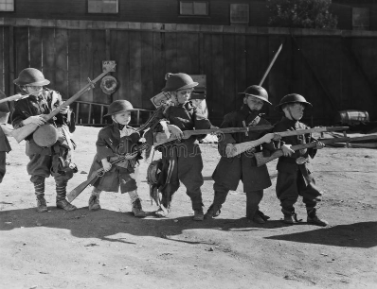
I’ve been meaning to write about K-Pop for quite some time, and a recent NY Times article reminded me…but not in a good way.
I have never been one to enjoy the pop music scene. As you may have seen from past articles, I’ve been at its fringes at best (I wouldn’t necessarily think of Steely Dan as “pop” music). I mean, I like early Genesis. That should put me in the clear, because most people know that within three albums of Peter Gabriel’s departure, they sold out.
But for the longest time I haven’t expected much of pop music at all – avoiding it has been one of my life’s great successes. My biggest problem with it has been the exploitation of its artists, and here is where I pull out the accusing finger and point it straight at the K-Pop music scene. While the casting couch and its ilk have long been an open secret in the entertainment industry (“Stick with me, babe, and I’ll make you a star! But I’m gonna have to get a closer look at that body of yours.”), the K-Pop industry has taken the exploitation of Korean youth to grand new levels. Starry-eyed children are scouted and scooped up into exploitative contracts where companies virtually own them. They cookie-cutter these kids into a carefully-crafted persona where every aspect of their lives is tightly controlled – where they go, what they do, who (or even worse, if) they date. They’re drilled in both choreography and charm – how to dance, how to move, how to talk, how to act, what to say. And that’s only round one.
Once the company’s got them ready, they’re tossed out like meat puppets on a stage for the second round of their exploitation – from obsessive fans who think they own these people.
And here’s where the article hits home. These people who proudly claim the name “Stans” for an artist (or more appropriately, in Korea, “Idols”) and turn what could be simple appreciation for their talent and art into an obsession. And now, through the magic of technology, the obsession is blasted around the world through social media platforms.

I was fairly ignorant of this until I met someone who’s a K-Pop fan. I already had a history of opinions on the genre (see above) as I saw it develop. I remember early artists trying to imitate American pop stars (and I thought it meant trouble way back then), but now that K-Pop has really found its unique voice – and again, that in large part due to technology – I know that it is far worse than I had feared.
As you can read in the article, pop stardom has become as much about manipulation as it is talent. Fans really have learned the ropes when it comes to artificially inflating their idols’ numbers. They’ll loop a playlist and then walk away and leave it on for hours in order to boost play-counts. They’ll buy albums by the dozens just to get a chance at being selected to meet their idol. These companies aren’t stupid. Tell a fangirl she has a better chance of meeting her idol if she buys multiple copies of an album and any other merchandise they throw out there and the company both rakes in the money and boosts their numbers on the charts. So it turns out, a great deal of an artist’s success is based on things that have nothing to do with their actual artistry.
Promotion has long been important for artists, but what we’re seeing here has gone far beyond simple promotion and well into exploitation. It exploits the fans, and of course it puts the artists on a grueling schedule in order to satisfy the terms of those who expect this of them. They’ve bought into them, they’re gonna get their piece.
And all of this is done by exploiting (I use that word a lot here) the technology and decades of mass-marketing research to a point where the creation of the artist is an art in itself.
I bristle at comparisons between the Beatles and BTS. The Beatles formed when a group of talented Liverpool schoolboys met and made music. They played grueling schedules at small clubs to hone their skills. They became popular because they themselves built something of themselves until they could be discovered. Lennon and McCartney were prolific and talented musicians who actually wrote – themselves, I’m telling you! – some of the world’s most beloved and memorable songs. Songs that we still hear today.
BTS, on the other hand, was entirely manufactured. They’re the typical test-tube baby that K-Pop grinds out – carefully selected, crafted, trained, drilled, presented; performing specially designed and carefully choreographed songs. They’ve got their number one hits, but in a few decades, no one will be singing them anymore. They’re completely cookie-cutter and forgettable (gasp!), just like the group itself is and will be in another few decades. The only thing for which they’ll be remembered is the phenomenon of which I’m speaking right now – the ability to manipulate the fandom and the numbers through slick technical means and methods. Through the artificial inflation of their numbers by rabid fans who won’t even let them have their own girlfriends.
Now I’d like to step aside and make one thing clear here – there’s no doubt that these young men are very talented. They wouldn’t be where they are without it. But the group was made, and its fame is bolstered by the tech – the trappings of a society that manipulates and produces, and then calls it “art.”
And here’s where it’s getting dangerous. As we read in the article, these masses of manipulated fans are “finding their voice,” and there can’t be anything wrong with that…except when their voice become that of a mob that crushes everything in its path. Or even more so, is used to manipulate and sway public opinion for more nefarious purposes.
We got a taste of things to come during the recent US election season when K-Pop fans “crashed” a Trump event by pre-registering for thousands of seats with no intent of showing up. Think about it: masses of teens and young adults (and yes, some older) fans of a Korean pop group who would gladly do the bidding of their leaders rose up to manipulate and obstruct a campaign event being held by the President of the United States.
Harmless? That could be a matter of opinion, and it doesn’t even really matter whether you like Trump or believe he’s a complete idiot. We’re talking about the mass manipulation of media and millions of rabid fans of a single genre of music being used to influence world events. They speak of finding their voices, but this is pure mob rule. And that’s not a good thing.
And today’s tech companies are willingly and gleefully making it happen. We now have these mobs of obsessive fans using their collective power to sway opinion and manipulate reality. This is not some harmless group of kids. The world’s obsession with clicks amplifies this problem immeasurably. What more evidence do you need than the label “Influencer” for prominent social media figures. And these people aren’t well-versed, thoughtful, highly-educated people – many of them are at an age where they’re nowhere near experiencing the world. These are kids who don’t have the sense of restraint to know that they are capable of ruining lives with their actions. Even if you hated Trump and thought “gee, that was kind of funny,” can’t you at least acknowledge that all it takes is a nudge from someone within the BTS Army to call to action millions to influence opinion? And do you think those who do the nudging are always going to be faithful young fans of these groups? It’s gotta be right there in the Propaganda 101 manual – and made so much easier now by the anonymity of the internet – that the infiltration and manipulation of such a large group as this is easy pickings?
And the frightening thing is, maybe next time it won’t be Trump. Maybe it’ll be something you care about (to tell you the truth, I’m almost afraid of posting this myself because if anyone caught wind that I was critical of BTS, I might get crushed). Ruined. Manipulated. And by whom? A bunch of immature teeny-boppers who know next to nothing about life’s struggles outside of their favorite idol getting a girlfriend? Or worse, a Russian or Chinese troll? If the world survives beyond the next few decades, we’ll have plenty of opportunities to go there. The phrase “it’s not a matter of ‘if,’ but ‘when’” takes an even greater force and urgency now. It is inevitable. We will reach a point where social manipulation will be so predominant and ubiquitous that living a normal, quiet life unaffected by such simple matters as pop-star Stans will be a thing of the past.
Welcome to the new world.
